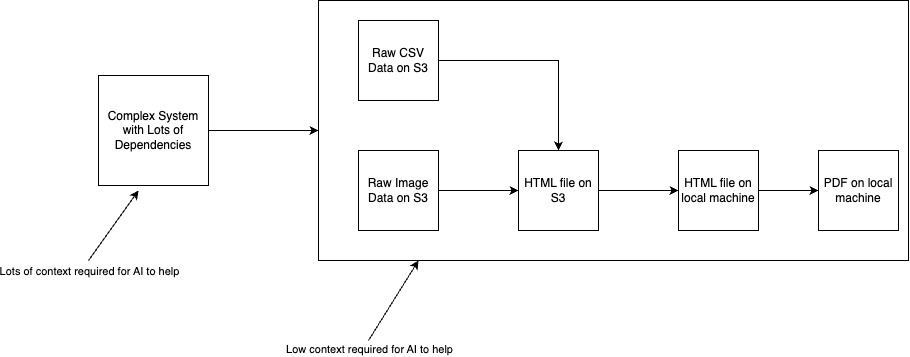Software engineering is changing. From autocomplete to chat-based code generators to no-code platforms, AI tools arrived like a tsunami in 2024.
It’s true that most software development work - especially for experienced engineers working on distributed systems and mature codebases - remains above the waterline. Smart autocomplete and agentic code composers are not going to debug that noisy pager about the dead letter queue (not in January 2025 anyway).
But AI tools make certain tasks 10x faster. Custom user interfaces, data transformations, simple automations, testing utilities - anything standalone with a high context switching cost is way easier to do with AI. We can get the most from these tools when we change how we work to do these tasks more often.
Let’s walk through an example. I recently built a system that opened each url in a list, performed a few actions, took a screenshot of the page, and wrote the screenshot to S3. The screenshots would be picked up by another system and displayed to a user.
As I debugged the system, I realized I was spending a lot of time downloading and opening the screenshots one-by-one. The optimal developer experience would have been for the system to generate a visualization of urls side-by-side with screenshots and open it as a pdf on my machine.
This wouldn’t be too hard to build - we could format text side-by-side with images in HTML and then convert the HTML page to a pdf for easier viewing. In a pre-LLM coding world I probably wouldn’t have taken the time to build this - too much boilerplate code and unfamiliar APIs - but cursor composer got the job done perfectly in a few minutes.

AI tools are not going to do your job for you - but they will do the quality of life work that wasn’t quite worth the effort before. By embracing these tools engineers can cut down on wasted time and focus on solving the problems that truly matter.